- Home
- Barry Lyga
Game Page 9
Game Read online
Page 9
“And by ‘things,’ you mean gutting them.”
“Yeah.”
“But wouldn’t paralyzing them make them not feel pain? I thought these kinds of guys got off on causing pain.”
“He’s paralyzing them from the waist down. Then cutting open their bellies. Trust me—they felt plenty of pain.”
Connie shivered next to him. “Does this mean he’s getting worse?”
“Escalation like this isn’t unheard of. A lot of these guys take time to refine their fantasies. He’s been thinking about all of this stuff for a long time. Maybe he thought that raping and killing and cutting off the penises would be enough. But by the time he hit number six, it wasn’t doing it for him any more. He needed something else.”
“So he adds in disemboweling.”
“Right. But here’s the thing: When he gutted number six, he was sure, confident. The cuts were precise. Almost surgical. When he killed number seven, there were hesitation cuts.”
“Like he was unsure of himself. Or maybe unsure of what he was doing?”
Jazz squeezed her hand. “Right. And that’s just weird. These guys usually get better, not worse. So why did he hesitate to gut number seven?”
Connie thought for a while. Jazz allowed himself to enjoy the quiet and the radiating warmth of her. “Maybe,” she said, “something distracted or startled him. No one is consistent all the time. Not even your dad.”
Variety’s the spice of life, Billy admitted.
But Jazz wasn’t buying it. “It’s not just the gutting,” he told her. “It’s other things, too. Like the rapes.”
Connie stiffened next to him, and Jazz cursed himself inwardly. To him, rape was just another crime visited upon Hat-Dog’s victims, but of course to Connie it would resonate more viscerally than that. “We really don’t have to talk about this now,” he said as gently as he knew how.
“I want to help,” she told him. “Keep going.”
He drew in a deep breath. “Okay. Well, rape is about power,” he told her. “Power and dominance.” And fun, Billy chortled. Heaps and heaps of fun! “But this guy doesn’t seem to enjoy his power. At least, not all of the time. If you look at the medical examiner’s reports, his rapes fall into two categories—some are violent and repeated while the victims are alive. Others are perimortem.”
“What does that mean?”
“It means at or around the time of death.”
“He’s raping corpses? Jesus Christ.”
“No, not corpses. Just raping them at their weakest, so he doesn’t have to struggle as much. So part of the time, he’s getting off on the power and the domination over them while they’re still alive and fighting. The rest of the time, he waits until they’re practically dead so that he can do it without any trouble. It doesn’t make sense.”
“The guy’s crazy, Jazz. It doesn’t always have to make sense.”
The same thing Hughes had said earlier. And the answer was still the same: “Not to you, no. But to them—to me—yeah, they should always make sense.”
“Are you saying your dad made sense to you?” she asked, horrified.
“I’m saying…”
This is a special thing, Jasper. For us and only us. Not for anyone else.
“I’m saying that I can understand it. I can live in his head. That doesn’t mean I agree with it.” I don’t think.
Because a part of him couldn’t stop thinking about Billy’s voice. Before. Urging him to sucker Connie’s legs apart and slide between them…
“I can live in his head,” Jazz told her, “because that’s where I grew up. With that kind of thinking. It was my normal. Like being in a cult, I guess. All the normal things, all the things that made sense to you or to Howie, were things I was taught didn’t apply to me. Like… like, did your parents ever tell you stories?”
“You mean, like ‘Goldilocks’ or ‘Sleeping Beauty’? Yeah, sure.”
“Well, Billy used to tell me stories, too. Stories about his prospects. And there was even…” He drifted off, suddenly lost in his own past. The Crow King… He had forgotten all about the Crow King. How could he forget that? It had been a mainstay of his childhood, that story. That myth. He’d loved it, not for the story itself but rather for the way Billy had told it, changing his voice and his facial expression to match the different characters as he went.
“You still there? Earth to Jazz…”
“I was just remembering, is all. When I was a kid, after Mom died, Billy used to tell me this story. Like a fairy tale, or a fable. It was about a crow. The king of crows, really.”
“The king of crows?”
“Yeah. It started out with the Crow King, who was surveying all he ruled…”
… and he saw it was good, Jasper. There was peace where there was supposed to be peace, and war where there was supposed to be war. Because the crow is a wise bird, the crow knows that someone’s always killin’ someone else somewhere. That’s the way of the world. That’s the natural order of things. And the Crow King was the wisest of all the wise birds, so there wasn’t no way no how he was gonna dispute the natural order of things. And so the world turned and the crows ate carrion and the young squirrels still a-sleepin’ in their nests and the vegetables growin’ in the fields (and you need to eat your vegetables, too, Jasper, to grow up big and strong).
Now one day, into this perfection, into this natural world, there came a red robin. Red like a sunset, Jasper. A more beautiful bird you could not imagine, not with all the thinking in all the world. And the robin decided that it wanted to be like a crow. More than that, it wanted to be the Crow King.
And so the robin went off and the robin killed. It killed a great many birds. It slaughtered, bringing war where there had been peace.
And the Crow King said, “No, this is not for you. This is only for me.” And he hunted down the robin, and when he found him, he held down the robin and pierced its breast with his beak and drank from it, draining it until its red feathers turned white.
And that, Jasper, was the first dove. And this is why the dove is a bird of peace—because it knows better than to try to be otherwise.
“That’s… that’s a horrible story!” Connie said.
“That was my bedtime story,” Jazz said, without inflection.
Connie wrapped her arms around him and Jazz let her and then—thankfully—he fell asleep, just like a little boy who’s been read to by his father.
CHAPTER 14
Lips on his
(oh, yes)
shoulder and trailing a line of cool heat
(oh)
down farther and his fingers touch something so soft and familiar
(there, touch me there)
and also somehow unknown and a groan
his groan?
or
hers?
He reaches out, back, around
(Oh, yes)
and opens his mouth
and licks
He awoke to find himself pressed tightly against Connie, terrified and horrified and aroused all at once. She was awake, too, whether because of him or not he didn’t know, but he kissed her and she kissed back just as urgently and fumbled with the drawstring on his pajama bottoms and reached for him there, and he would have let her, he needed to let her, but at the last minute he drew in a breath and
—like cutting—
Oh, yes, just touch—
he pulled back, pulled away, shoving Connie more violently than he’d intended.
Both dreams. Both of them at once—
He rolled out of bed, arms flailing, smacking into the nightstand, pulling the alarm clock and the phone down to the floor with him.
Both of them. Killing and sex and—
“I’m sorry,” he said. “I’m sorry.”
Sorry’s not enough. Never enough. Never, ever…
Connie crawled over from her side of the bed to look down at him, her hair covered by the satin bonnet she wore to sleep. In the murky light that bled th
rough the thin curtains, she was chocolate cream and he wanted to devour every last inch of her, wanted to run his tongue over her, wanted to sink his teeth into her and suck out everything of her, ingest it into him.
No. No! Stop it! That’s crazy.
Take it, Jasper, Billy cooed. Take her. She’s yours. She’s your prospect. This is what you’ve been waiting for. And best of all, Jasper? Best of all is that she’s been waiting for it, too.
Not true. He couldn’t believe it was true.
But then there was the naked lust, the yearning in Connie’s eyes, in the parting of her lips, in her pose on the bed. It was less than human, this electricity between them. It was primal, as it was meant to be, as it should be.
That’s when it’s best, Jasper. When they come to you. When they want it as badly as you want to give it.
“Why are you afraid?” Connie whispered, and her voice tasted like warm pie. “Why are you so afraid of me?”
“I’m not afraid of you.” And he wasn’t. Jazz was afraid only of himself.
“I know it isn’t easy,” she said. “I know it’s complicated for you. But this—this thing, this moment—this is supposed to be easy. So easy.”
“We can’t.”
“I brought condoms,” she said, the words an electric prod to his heart. “I thought… I knew we’d be alone here.”
Jazz closed his eyes. It was as though he could see the future. But not just one future. He could see so many of them. He could see himself, happy, with Connie, two normal people living normal lives, drawn closer together and connected by their shared intimacy, the way it was supposed to work, the way it was supposed to be.
But he could also see…
But here’s the thing, Jasper, Billy’s voice purred, speaking from the last time he’d spoken to his father, at Wammaket State Penitentiary. I bet you’re a nice, responsible kid, ’cause I raised you that way, but are you always the one buyin’ the rubbers? Hmm? Or maybe she’s on that pill? ’Cause you can’t always trust ’em, Jasper. You look at them rubbers real close-like, see? You watch her take that pill, Jasper. Hell (and here Billy had roared with laughter), how you think you was born?
He could also see sex as the ignition moment, the fulcrum upon which his own career of serial murder would lever.
None of Billy’s victims had been black. There had been Latinas and Asians and a great profusion of white girls, but not a single African American. Jazz thought that made Connie safe.
He’d thought that… until now.
Now he was no longer certain.
He wanted her so badly. And was that because he was a boy and she was a girl and they were in love and that’s how it was supposed to work?
Or was it because the deepest part of him, the Billy part of him, champed at the bit, strained against its tether, eager and desperate for freedom, to begin what it had been born and made to do?
He squeezed his eyes shut tight, as tight as he could. As tight as the night Billy had skinned poor Rusty alive. The howl of the dog as Billy’s knife did its gruesome work…
Phosphenes again behind his eyelids, this time not of the crime scenes from the pictures, but rather as he’d seen them tonight.
I did something good tonight. I helped tonight. Doesn’t that mean I should be getting better, not worse?
Sex and killing. The two dreams, conflating. What did that mean?
When Jazz opened his eyes and spoke, his voice was deep, sure, emotionless.
“You should throw those condoms away,” he said.
And then he crawled into the other, empty bed to sleep.
CHAPTER 15
Billy Dent roamed Brooklyn, the day having dawned clear and cold. He turned up the collar of his coat and tugged his hat down around his ears.
The cold weather made hiding even easier. Everyone all bundled up. Everyone in such a hurry to get to where they were going. No one stopping to look at anyone else. Everyone wearing gloves, how convenient. Cover up those prison tats. Cover up LOVE. Cover up FEAR.
Cover ’em up, but they’re still there. Love and fear. Equal. Maybe even the same.
It wouldn’t have mattered if anyone had been looking at him, anyway. Billy didn’t fear the human eye. The human eye was a fickle, foolish thing. His goatee and mustache, along with a set of muttonchop sideburns trimmed and shaped just right, changed the angles and configuration of his face. Cutting down his eyebrows made his eyes more prominent. And, of course, he’d dyed his hair.
Billy chuckled to himself when he thought of the vanity of women, and how they’d made it easier on folks like him. God bless Miss Clairol and her endless variations of hues and shades! Billy had—by mixing together a specific set of colors—managed to turn his dirty blond hair into graying brown. After thinning it out with an electric razor, he looked ten years older. The final touch was a pair of black, heavy-rimmed glasses, the kind Billy’s own father had once worn. To the idiotic hipsters of Brooklyn, these glasses were “fashionable.” They also distorted Billy’s features in a way that pleased him and made him harder to recognize. Oh, glorious fashion!
Disguising yourself wasn’t just about making yourself look different; it was about making yourself look different from what people were looking for. The cops could imagine Billy growing a beard or shaving a beard or growing out his hair or coloring his hair, but would they imagine him making himself look older?
He’d studied the FBI and police procedure most of his life. He knew how cops thought and, more important, how they thought he thought. They thought him a creature of immeasurable vanity, and they couldn’t imagine that he would be willing to make himself look worse in order to evade recapture.
Billy was willing to do anything to evade recapture.
After years in prison with nothing to do but exercise, Billy was in top condition, but he dressed to hide his physique. Walked with a slump. When he was out and about, he made sure to wear a watch and checked it constantly, communicating that he was in his own world.
Plus, he had the perfect bit of camouflage: a stroller and a diaper bag.
This part of Brooklyn was called Park Slope, and Billy had noticed quickly that damn near everyone here had either a dog or a baby carriage or both. He had no interest in actually taking care of anything living, but he had a big interest in blending in, so he’d bought a used stroller at an antiques store, then wrapped up a bundle of blankets to look like a baby. Since it was winter, he could keep the top down; anyone looking through the little plastic window would see what appeared to be a well-tucked-in child, napping.
And the diaper bag actually held diapers. Under the diapers, Billy had stashed three different-sized knives, a Glock he’d bought on the street, and a length of rope.
Ambling along the streets of Brooklyn, no one gave an older dad a second look.
People. Ha.
Billy worried more about facial-recognition software than he worried about a human being recalling his face from TV. Cameras were everywhere in “free” America—at ATMs, at street intersections, at banks, behind convenience-store counters. The bastard cops and the FBI were supposed to need search warrants and court orders to look at those cameras, but Billy was no fool. He knew about the Patriot Act. And he knew something even more sinister—he knew the fear that ruled in the hearts of all prospects. The bastard cops needed a court order only when someone said no to them. And these days, all you had to do was wave a flag or say “keeping Americans safe” and anyone owning those cameras would let the cops look all they wanted. No hassle. No fuss, no muss. So Billy took no chances. He wore sunglasses and a hat whenever possible.
And he smiled.
Facial-recognition software, for some reason, had trouble distinguishing between two faces if one of them was smiling. There were even states where you couldn’t smile for your driver’s license photo. So, Billy smiled everywhere he went.
This was hardly a chore. Billy liked smiling. Billy was a happy guy.
In his coat pockets, he had a total of fi
ve different throwaway cell phones. One of them buzzed for his attention as he pushed his stroller past the umpteenth coffee shop on Fourth Street. This place was obsessed, Billy had noticed, with coffee shops. There were three of them on every block, not to mention the occasional Starbucks.
He paused as he groped for the proper phone. Only one person had the numbers to his various phones, and that was just for emergencies. He shouldn’t be receiving phone calls—he gave them.
Finding the right phone, he flipped it open, and before he could say anything, the voice at the other end said, almost saucily, “Guess who’s in town?”
And then told him.
And Billy Dent’s smile grew even wider.
CHAPTER 16
The pounding at the door woke Jazz from a deep slumber that morning, gasping awake as if he’d forgotten how to breathe. Connie bolted up in the other bed, startled.
“Who—” she started.
“NYPD!” a voice barked. “Open up! Now!”
“NYPD?” Connie whispered. “What?”
Jazz shook sleep from his head and rolled to his feet. Was Hughes playing some kind of joke? Or…
Or was he being Fultoned again?
He left the chain on the door, opening it just enough to peer out. Two uniformed cops stood there, along with an older white guy in a suit and tie. The white guy pushed at the door. “Jasper Dent,” he said. It wasn’t a question. It was more like a command, as though he were ordering the kid at the door to be Jazz.
“Let me see some ID,” Jazz said, but before the words were even out of his mouth, he was looking at the name card and badge for Detective Stephen Long.
“Homicide,” Long snapped. “Brooklyn South. Open the door.”
Brooklyn South. Homicide. The same division Hughes came from.
Or claimed to come from. The badge and name card looked similar to Hughes’s. How hard would that be to fake? Probably easier than Jazz thought, but harder than made it worthwhile.
“What can I do for you, Detective?” Jazz asked, stalling. He could hear Connie behind him, throwing on clothes, no doubt.

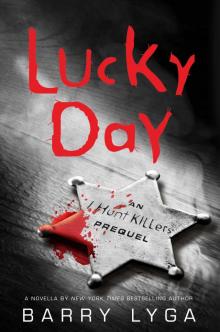 Lucky Day
Lucky Day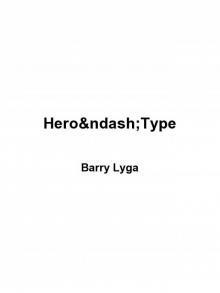 Hero-Type
Hero-Type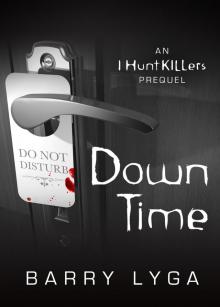 Down Time
Down Time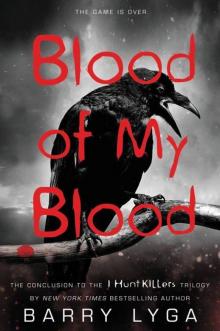 Blood of My Blood
Blood of My Blood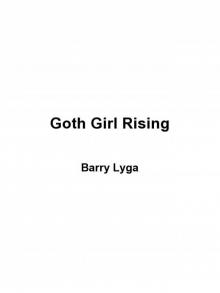 Goth Girl Rising
Goth Girl Rising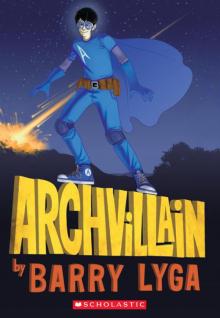 Archvillain
Archvillain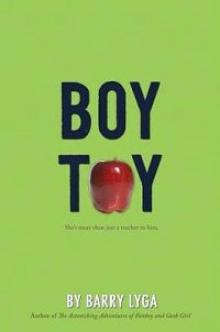 Boy Toy
Boy Toy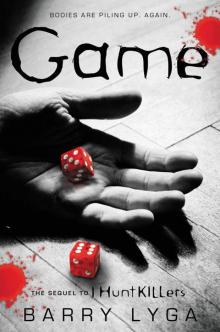 Game
Game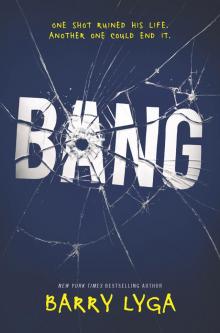 Bang
Bang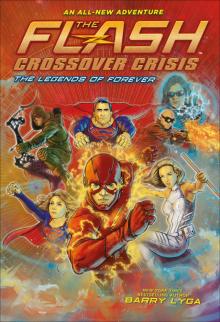 The Legends of Forever
The Legends of Forever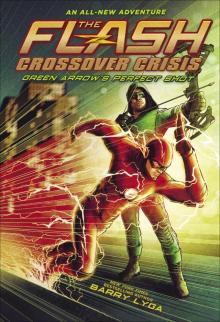 The Flash: Green Arrow's Perfect Shot
The Flash: Green Arrow's Perfect Shot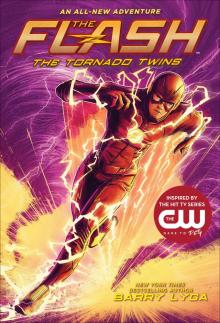 The Flash: The Tornado Twins
The Flash: The Tornado Twins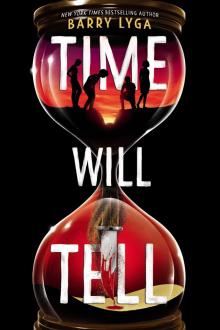 Time Will Tell
Time Will Tell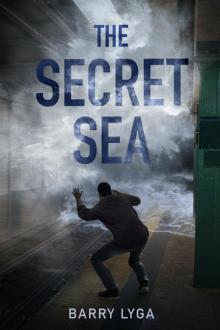 The Secret Sea
The Secret Sea The Hive
The Hive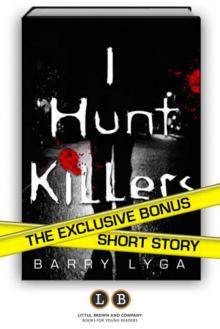 Career Day
Career Day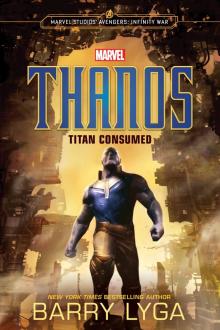 MARVEL's Avengers: Infinity War: Thanos
MARVEL's Avengers: Infinity War: Thanos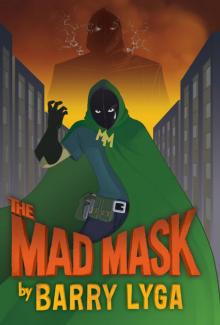 The Mad Mask
The Mad Mask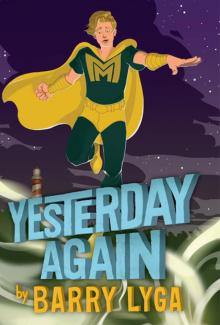 Yesterday Again
Yesterday Again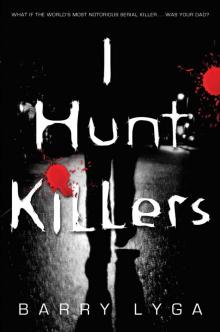 I Hunt Killers
I Hunt Killers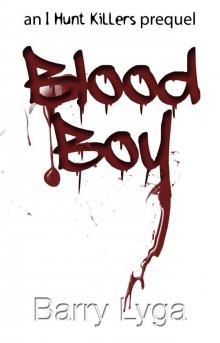 Blood Boy
Blood Boy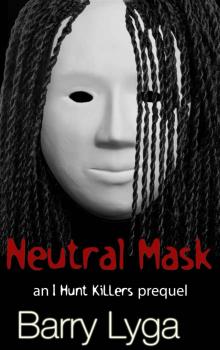 Neutral Mask
Neutral Mask The Astonishing Adventures of Fanboy and Goth Girl
The Astonishing Adventures of Fanboy and Goth Girl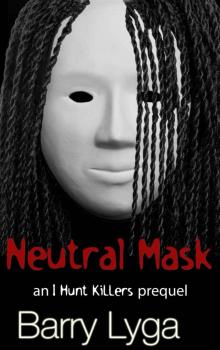 I Hunt Killers Neutral Mask
I Hunt Killers Neutral Mask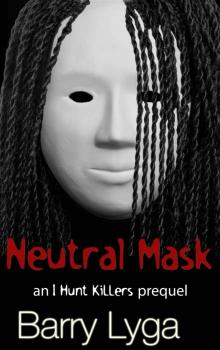 Neutral Mask: an I Hunt Killers prequel
Neutral Mask: an I Hunt Killers prequel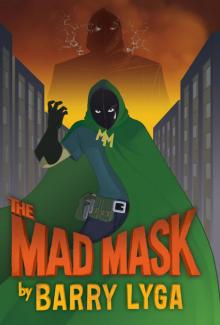 Mad Mask
Mad Mask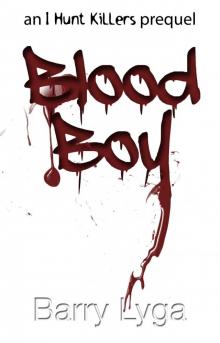 Blood Boy: an I Hunt Killers prequel
Blood Boy: an I Hunt Killers prequel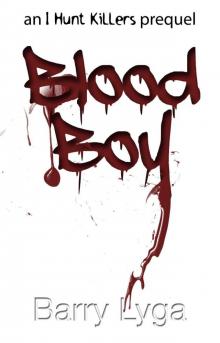 I Hunt Killers Blood Boy
I Hunt Killers Blood Boy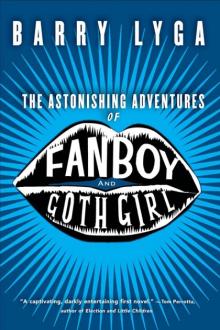 The Astonishing Adventures of Fan Boy and Goth Girl
The Astonishing Adventures of Fan Boy and Goth Girl